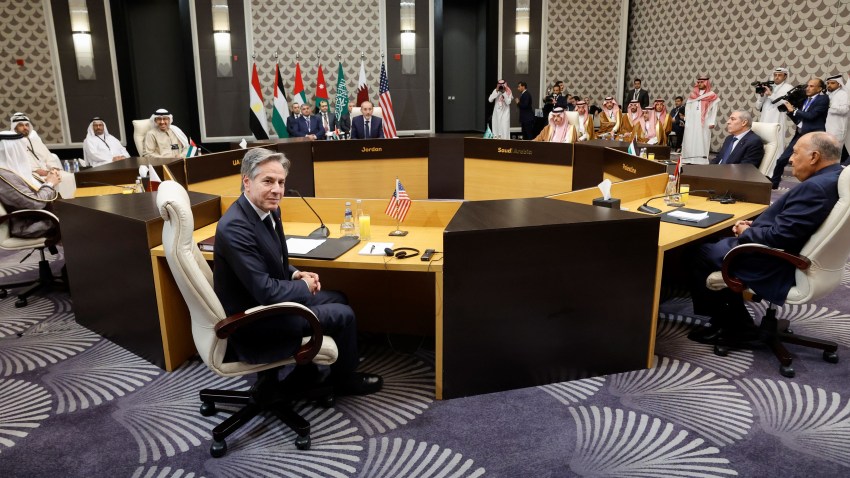Amid Israel’s ongoing airstrikes and ground offensive in Gaza, Arab states with peace and normalization treaties with Israel have found themselves in a delicate position. Following Hamas’ attack on Oct. 7, initial regional calls for de-escalation quickly turned into denunciations of Israel’s bombing campaign, after leaders in Jordan, Egypt, and Israel’s Gulf state partners—namely Bahrain and the United Arab Emirates—have faced pressure from their fiercely pro-Palestinian populations to address Gaza’s plight.
With criticism of Israel escalating, Jordan recalled its ambassador and a rumor spread that Bahrain had severed its ties with Israel. It’s important to note that Jordan’s actions are not unprecedented; it similarly recalled its ambassador in 2014, when Israeli forces clashed with Palestinian protesters at Jerusalem’s Al Aqsa Mosque and subsequently closed the complex, of which Amman is the custodian. But rather than a broad repudiation of bilateral ties, Amman’s protest of Israel’s actions in Gaza instead reflects the recurring tensions in Jordan’s relations with Israel since their 1994 peace treaty.
As for the reports that Bahrain had severed diplomatic and economic relations with Israel, such a move would indeed be significant, given Bahrain’s participation in the Abraham Accords of 2020. But while the two countries’ ambassadors did return home shortly after the war erupted, sources from both sides later reaffirmed that their commercial ties remain stable. The origin of these rumors was apparently a nonbinding motion by Bahrain’s parliament expressing criticism of Israel’s attack on Gaza, rather than an actual policy shift. Bahrain is not unique in this regard, however, as even the UAE, which has become a close partner of Israel since also signing the Abraham Accords, has so far resisted pressure to expel the Israeli ambassador and downgrade ties.

